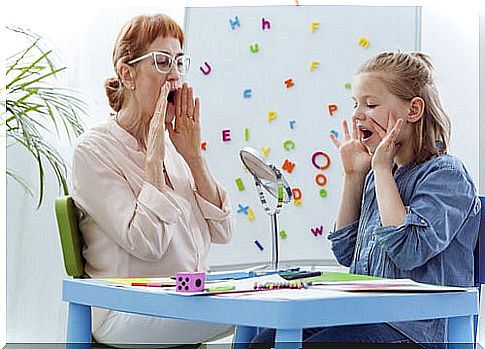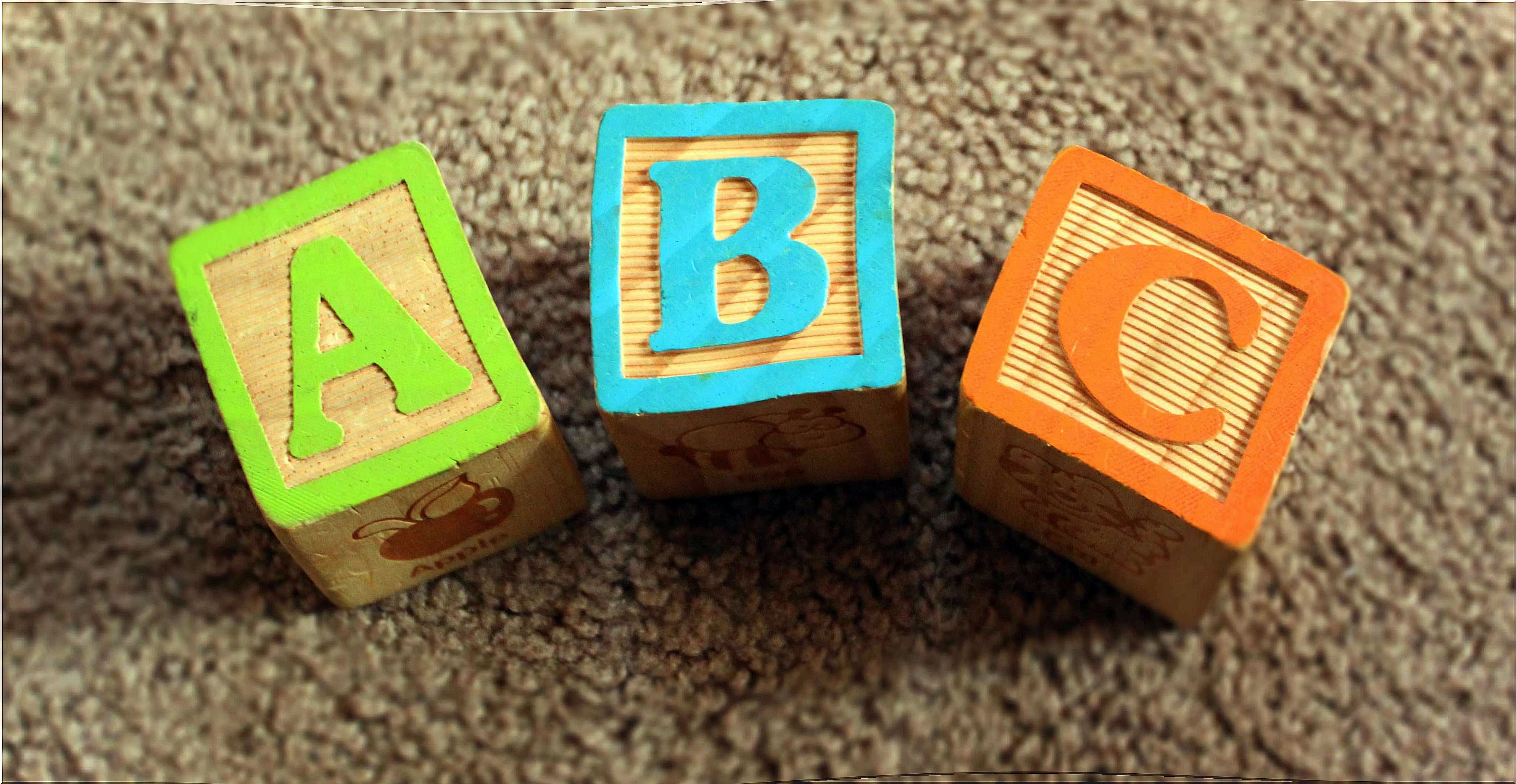Dysphasia In Children

Dysphasia in children is a condition that is mainly characterized by a delay in the use of language and a lack of mastery over it. Therefore, they tend to exhibit evasive behaviors, such as: not looking into the eyes, not responding, using very simple communication gestures and a very limited vocabulary.
This condition may (or may not) be comorbid with mild mental retardation, which may be a direct or indirect product of dysphasia, either due to delayed treatment that prevents communicative development; and therefore, cause underdevelopment in logical understanding at the brain level.
Types of dysphasia in children
1. Expressive
In its expressive modality, dysphasia in children is characterized by the normal maintenance of intellectual abilities within the normal range, as well as it is not compromised with any visual or auditory disease. The difficulty is denoted in the poor ability to imitate the sound of words, which in turn limits their understanding, thereby maintaining a null or very little vocabulary.
It has a motor nature, that is, with an underlying difficulty in the execution of the words, but not in their understanding, so that children who are closer to this type of dysphasia, tend to understand the basic verbal instructions that they are given His parents.
2. Receptive
This type of dysphasia in children is denoted by a low IQ, which ranges from a slight delay to an intellectual capacity within normal limits, and which can occur in comorbidity with slight hearing impairments.
Its nature is more sensory, that is, making it difficult to understand the stimuli in the environment, which often translates into the use of language with atypical grammatical constructions in these children , such as the incorrect use of verb tenses or words without logical relationship to try to communicate.
3. Mixed
It can present a clinical picture with both expressive and receptive symptoms of dysphasia.
Extraordinary symptoms
Symptoms that are part of and NOT a cause of dysphasia: in children
- Anxiety disorders.
- Social behavior with a marked connotation of insecurity.
- Thought / language underdevelopment according to age.
- Low capacity for abstraction and logical compression.
- Development of psycho-affective pathologies.
- Learning difficulties.
- Memory problems.
- Social isolation.
- Low self-esteem.
It should be noted that, although the above accompanying symptoms are serious to a greater or lesser degree, they can be completely avoided with a correct and early clinical approach to the condition in the child.
It is also necessary to mention that although at first the dysphasia may only affect communication skills or verbal comprehension, by nature, it will also extend to the level of reading and writing if the condition is not treated in the first years of the child’s life. small.
Causes
Dysphasia in children does not have a triggering clinical picture like its counterpart, aphasia (a similar condition, but whose deficit does have an identifiable origin of a pathological nature or attributable to cranial contusion).
Treatment
Treatment for dysphasia in children consists of an orthophonic rehabilitation plan, through which an attempt is made to acclimate the child to stimuli not correctly perceived (due to dysphasia).

The rehabilitation consists of exercises of auditory, gestural and orofacial discrimination, separately and with combined dynamics as the rehabilitation progresses. This allows the child in the foreground to identify, understand and respond to others, at least in a basic way.
In the didactic phase, the rehabilitator will use drawings and texts to train the child’s semantic, syntactic and morphological skills, so that he can make efficient use of language and promote good communication.
Dysphasia-like conditions
Dysphasia is often confused with other conditions, such as: autism, mental retardation, selective mutism, Asperger’s syndrome, among others.
Once the child is taken to a medical professional, it is not difficult to differentiate pathology. Neurological diseases have very unique features that are easy to detect, and therefore allow the inferring of dysphasia in children relatively easily.
Importance of early detection
Dysphasia can cause permanent learning problems and accentuate a low cognitive capacity, turning a mild, even imperceptible, intellectual delay into a true disability as its presence is much more evident.
It is important to take the child to the doctor with any suspicion of dysphasia or other neurological disease. Dysphasia in children can greatly improve and even be insignificant for the good school and social development of the child. The effectiveness of orthophonic rehabilitation will largely depend on how early the condition is treated.










